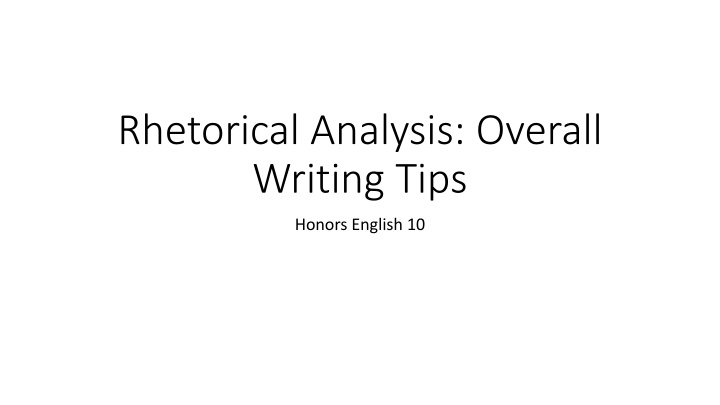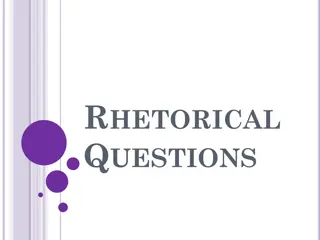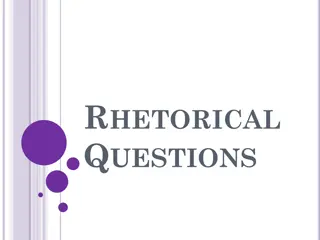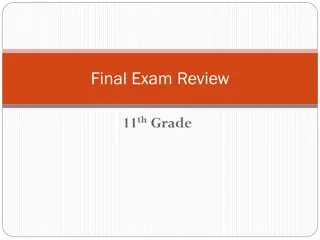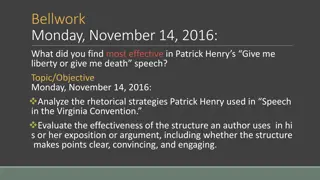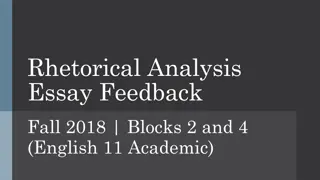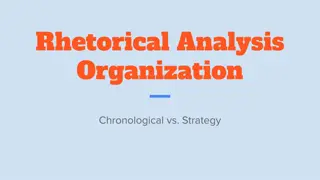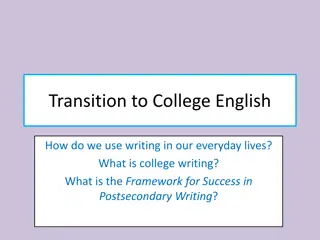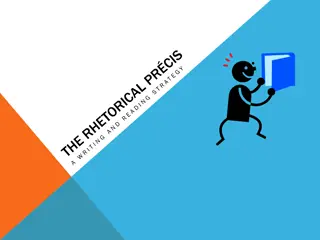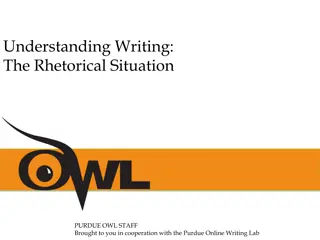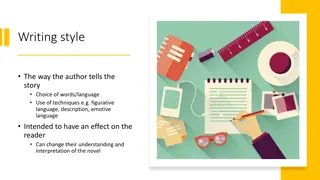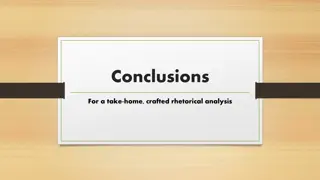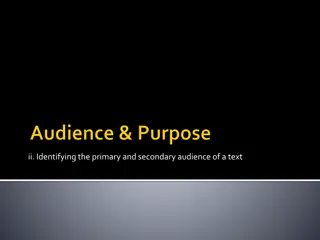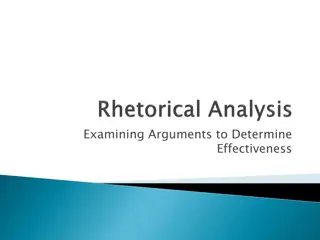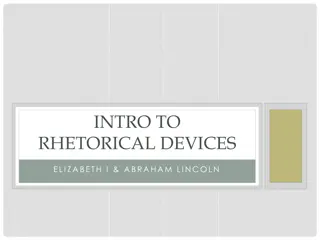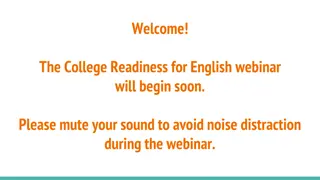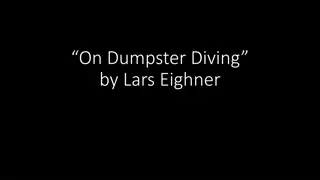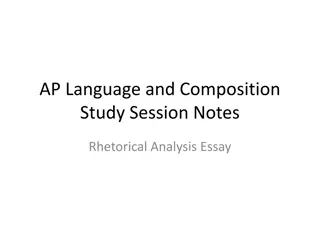Effective Writing Strategies for Rhetorical Analysis
Utilize ethos, logos, and pathos effectively in your rhetorical analysis while maintaining audience focus, avoiding device definitions, improving grammar and vocabulary, and ensuring coherency through transitions and language flow.
Download Presentation

Please find below an Image/Link to download the presentation.
The content on the website is provided AS IS for your information and personal use only. It may not be sold, licensed, or shared on other websites without obtaining consent from the author.If you encounter any issues during the download, it is possible that the publisher has removed the file from their server.
You are allowed to download the files provided on this website for personal or commercial use, subject to the condition that they are used lawfully. All files are the property of their respective owners.
The content on the website is provided AS IS for your information and personal use only. It may not be sold, licensed, or shared on other websites without obtaining consent from the author.
E N D
Presentation Transcript
Rhetorical Analysis: Overall Writing Tips Honors English 10
Ethos, Pathos, Logos While ethos, pathos and logos are the key ingredients when beginning to look at rhetorical devices, we don t want to see the words ethos, pathos and logos splattered all over your rhetorical analysis. It can make the fluency of the essay choppy and redundant. Here are other words you can use: Ethos: Credible, Credibility Pathos: Emotion, Emotional, Emotionally Logos: Logic, Logical It s amazing what a little rearranging of words can do for your essay.
Audience Sadly, we do not know what the audience s reaction actually is, we only know what the author wanted the intended audience s reaction to be. It is important to remember this... Do not state what the audience feels, state what the author is trying to do to his/her intended audience. This is a very simple fix in wording within your essay. Rather than stating The audience felt you can said Our author is trying to make our audience feel
Rhetorical Devices You do not need to give reader s a definition of a rhetorical device that you bring in to your rhetorical analysis, you should assume that they already know what this is. Your job is to relate it back to the author s purpose and audience, not give us a lesson on the device.
Grammar Though this may sound like some captain obvious info, nobody likes to read a work that has errors and sentence structure problems! Keep a fair mix of short and long sentences and make sure to avoid abbreviations. This is FORMAL WRITING!
Vocabulary This can get a little tricky.. Now, having a wide range of vocabulary is a sure-fire way to gain some style points from the instructor. It shows that you are multidimensional and can write in a diverse number of ways. HOWEVER, do not just throw words into your essay because they sound smart. Make sure it is relevant to what you are saying.
Coherency The smoother your essay sounds while it is being read, the better the content will seem. Having strong and appropriate transitions keep the essay from getting cluttered as well as using a wide range of punctuations. Do not just jump from point to point; rather, ease the reader into your next thought with smooth language! Basically - USE TRANSITION SENTENCES, PEOPLE!
Present Tense, Present Tense, Present Tense Use Present Tense: When writing formally or for any academic essay, make sure to use present tense writing. It helps to avoid confusion and keeps things straightforward, as well as the fact that writing should feel at the moment . This may seem unnatural at times, so check your essay before turning it in to make sure a argued or used didn t slip in there.
Respond to the Text This can not be stressed enough. Do not write a plot summary. Avoid listing the literary devices and providing quotes along. Explain the IMPACT of each literary device and SHOW how the quote supports it specifically!
ALWAYS REMEMBER THAT. Everything in your rhetorical analysis should lead back to the AUTHOR You are not writing an essay about rhetorical devices, you are writing an essay about the author s purpose behind the rhetorical devices You are not writing an essay about the audience, you are writing an essay about ways the author was trying to make the audience react
Get out 1) Rhetorical Device Packet 2) Rhetorical Analysis Outline Sheet and 3) Notes on Rhetorical Analysis Get in groups of 2-3. Read the essay, America Needs Its Nerds with your group. Pick 2 rhetorical devices that you found within the essay and write 2 body paragraphs, including transition sentences with your group. Use these to help you write. You have 30 minutes to complete and then we SHARE!
The author attempts to appeal to patriotism in the middle of his article where he describes how anti-intellectualism is hurting America. The author s intended affect on the audience is to get them to accept the nerds and geeks in order to improve the situation of the U.S. Fridman s use of appeal to patriotism allows him to get the audience to react because he is able to get them thinking about their actions and how they have affected the state of the U.S. When the author appeals to their patriotism it helps prove his point because the citizens want to be patriotic.
Fridman in his arugment questions the purpose of name-calling by pondering why nerdy or geeky is looked down upon. This is seen in paragraph six when Fridman explains how nerds and geeks should not be ashamed of who they are because of their level on intellect. This helps the writer achieve his purpose of questioning the value of the American society in order to stimulate a conversation on what is really important.
